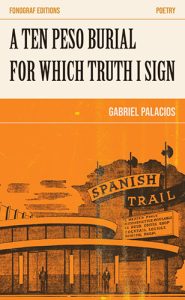West Branch – Spring/Summer 2009
Number 64
Spring/Summer 2009
Biannual
Sima Rabinowitz
It’s the range – and, in some cases, the combination – of tones, voices, and diction that make this issue of West Branch exciting. Poems from Christopher Weese’s series “Marvels” will help me illustrate my point about diction. Here is an excerpt from XXII:
It’s the range – and, in some cases, the combination – of tones, voices, and diction that make this issue of West Branch exciting. Poems from Christopher Weese’s series “Marvels” will help me illustrate my point about diction. Here is an excerpt from XXII:
I was a wartime censor,
seeding letters with sudden shadows
like visual static,
a hundred possible sentences
aging the vague, contagious darkness,
Where there had been cities.
I left islands.
And here is an excerpt from XLVI:
I was a performing bear personality
impersonator
specializing in blindfolded motorcycle stunts
for corporate parades
Or contingency Super Bowls.
During our first date,
I licked my own skin habitually.
The conceit in the first line (“I was a …) creates both the opening and the need for an eclectic and shifting diction. I was captivated by the idea, impressed by the precision of the images, even in cases where references to popular culture bear much of the weight making a meaning vivid, and certainly interested in reading more of the “Marvels.”
This issue really is a study in shifting tones and diction. There’s the casual, yet also lyrical verse of Harry Humes in “Look at Me Out Here At Dusk Picking” (“up a fallen nest or touching the last purple blossom / off the butterfly bush and hoping / to find one more mantis husk one more tomato / look at me sitting by the fire ring”); and also the strange and strangely successful diction and syntax of Lindsay Marianna Walker in “Josephine at Carnivale” (“Hortense and I pigeon the seaside town, / versed in trade: photos, postcards, baguettes. / The promenade gone garland with parades, / subtle mountains gray the basin, stiff as the beard / of an elder. Wasn’t it February?”). There are Ellen Wehle’s finely sculpted observations and closely etched philosophies and pronouncements in “Building the Cathedrals” (“Blue silk star-hung / When I promise / You the heavens / Close at hand, // Ascend me, love, / With great care. // Grain-deep, my /oldest fear: I / Grace the pyre.”). And William Joliff’s tall-tales sort of approach in “‘Martha Campbell’ At Ray’s Place” (“Just about all of them, Jimmy Wheeler said, / all those old Ohio fiddlers honed / a way of playing ‘Martha Campbell,’ / men like Shorty Mobley and Junior Shirk, / and, now I know, my own Great-Grandpa Tom).
I would never forgive myself if I ended this review without mentioning Lucy Corin’s “Four Small Apocalypses,” an amazing piece of short fiction that begins with the most marvelous of openings: “For half of the year, when her father was working, it was as if she weren’t half made of him.” And Ann Panning’s essay “Untranslatable,” which is utterly sensational – a brief exploration of words and concepts in other languages for which we have no equivalent in English except the raw and real experience of the essence of the phrase’s meaning as lived. I think it is safe to say that my response to this issue is untranslatable.
[www.bucknell.edu/westbranch]




